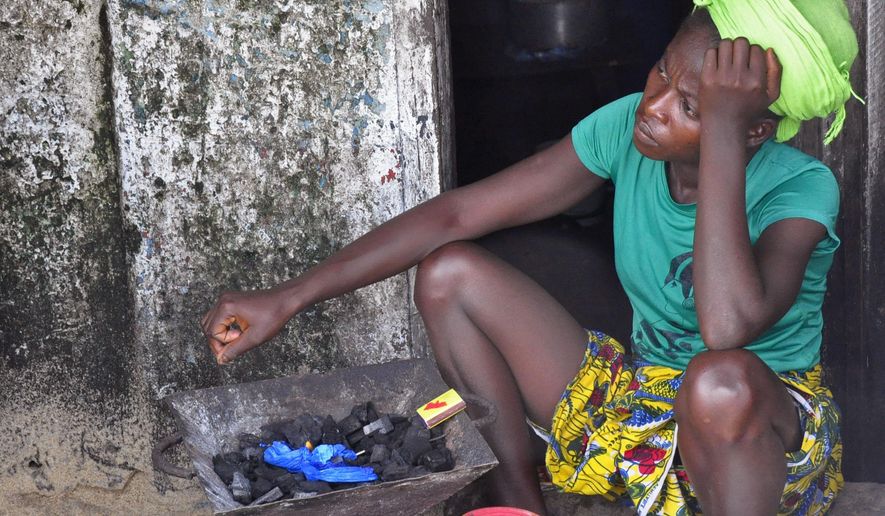BONN, Germany — President Trump remains determined to take the U.S. out of the global Paris climate accord, but that hasn’t stopped the U.S. from being a player as the latest U.N. summit on climate change wound down Thursday.
U.S. government officials said Washington will push for a change to World Bank rules blocking funding for coal-related projects, while seeking to build “a clean-coal alliance” of like-minded nations across six continents.
George David Banks, the chief U.S. representative to the 23rd Conference of Parties of the Paris accord on climate change, popularly known as COP23, said the World Bank ban on underwriting projects using coal was “very, very wrong” and the Trump administration would seek to reverse it.
The ban, adopted in 2012, also has been criticized by nations such as Nigeria, Tanzania, India and Bangladesh, all of which have sought to fund development and infrastructure projects using coal.
Mr. Banks, Mr. Trump’s special assistant for international energy and environment, said it was vital that developing countries be able to generate electricity and that the structures of the Paris deal work against poorer countries trying to meet their emissions targets.
“Having no electricity and therefore no industry is far more of a problem in people’s lives right now than climate change,” he said. “And, yes, this is a security issue and the U.S. sees it that way. Unemployed young people in Africa migrating to Europe or joining militia because they have no work.”
Mr. Banks said Washington was “talking about a clean coal alliance, with perhaps Australia, India and countries in Africa.”
U.S. delegates said such an alliance in time could include other coal-dependent countries such as Bangladesh, the Philippines and Poland.
The U.S. stance was announced even as Canada and Britain were unveiling their own Global Alliance to Power Past Coal to phase out the use of coal. The alliance includes a number of U.S. states in addition to countries in Europe, Central America and Asia.
The first U.S. shipment of coal to Poland will arrive next week. President Trump this year visited Poland, which is among Europe’s largest coal users. With freezing temperatures predicted to arrive earlier than normal, the government said it was importing additional stocks.
“I can say that this winter no one will be cold in their homes because of a lack of coal,” Polish Energy Minister Krzysztof Tchorzewski told journalists.
The U.S. approach at the climate change talks has been to offer support for countries that plan to continue using coal, especially those like South Africa and India, which have little option because much of their electricity is coal-fired.
Mr. Banks said a clean-coal alliance would share the “best and newest American tech to make sure coal anywhere in the world is burned as cleanly as possible.”
But he said multilateral lending institutions, including the World Bank, “need to change their approach.”
A rival nonofficial U.S. group, dubbing itself “We’re Still In,” held a reception for delegates, opposing Mr. Trump’s stand on global warming and on leaving the Paris accord.
Most of the exhibits, set across halls, tents and walkways along the banks of the Rhine River that flows through Bonn, dealt with wind and solar power. Some in the Dutch delegation were vocal about converting Europe to renewable energy, even though the Netherlands remains the world’s largest importer of American coal.
Fossil fuel champions were a distinct minority at the 12-day gathering, which kicked off Nov. 6. U.N. Secretary-General Antonio Guterres on Wednesday said should start putting a direct cost on carbon and establish “cap-and-trade” systems to drive down emission levels.
“Growing carbon markets in Europe and North America, and China’s expected announcement of one of the world’s largest emissions trading systems, are a good sign,” he said. “But to meet the Paris goals we need at least 50 percent global coverage and a higher price on carbon to drive large-scale climate action.”
But the delegates were jolted by news that global emissions had edged up in the first year since the signing of the Paris deal, even though U.S. emissions were down.
In the South African delegation, Deputy Energy Minister Thembisile Majola, a qualified engineer, said it was “important to get past the sounds bites when it comes to issues like fracking or fossil fuel. I think you need to get on the ground and speak with communities.”
In Africa, more than 600 million people live without electricity from any source.
Mr. Banks said the White House was “still formulating its global energy policy” but that Washington was “determined to remain engaged with other coal-dependent economies.”
Although the U.S. will soon be the only U.N. member not part of the Paris accord, there was no sign that Mr. Trump or his advisers were rethinking their demands that the agreement be changed significantly to prevent a Washington exit.
In a closing statement Thursday, Judith Garber, an acting assistant secretary of state, told the forum that the administration remains open to rejoining the Paris agreement “under terms more favorable to the American people.”




Please read our comment policy before commenting.